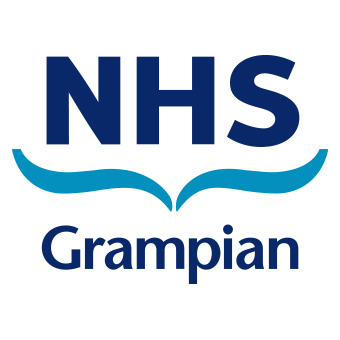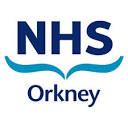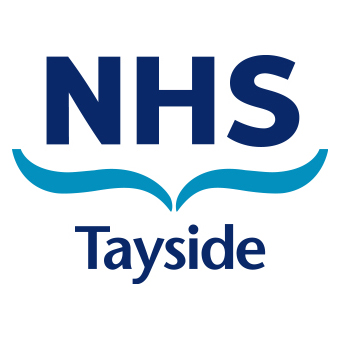

Preparing for non-surgical cancer treatment






Preparing for cancer treatment
Making changes to your lifestyle can help you cope better with your treatment.
There can be lots to think about in the run up to your cancer treatment. Some people describe this time as feeling as if they have 'no control' but...there is lots you can do to improve your body's ability to cope with the physical and mental strain of cancer treatment.
The preparation you put in now is vital to improving your outcomes later.
Who is this information for?
- Anyone who is currently receiving cancer treatment (chemotherapy, radiotherapy, immunotherapy, targeted therapy)
- Anyone who has cancer treatment planned
- You may also find this information helpful if you are supporting someone through cancer treatment
Why is it important to prepare for cancer treatment?
Preparing your body and mind for cancer treatment has the potential to improve your response to treatment. Just like your fitness is assessed for any surgery, your fitness is also assessed to make sure you will be able to cope with having cancer treatment.
Looking after your mental health and keeping yourself active and well nourished can reduce the risk of unplanned changes to your treatment plan. Other benefits include;
- Lower risk of developing infection
- Improved ability to respond to any infection
- Improved wound healing
- Quicker return to your usual level of fitness
What can I do to prepare myself?
You can improve your body's tolerance to cancer treatment by making practical changes to your;
- Nutrition, hydration and other lifestyle choices
- Activity level
- Psychological wellbeing
Nutrition, hydration and other lifestyle choices
Your body needs energy and protein to function effectively. These are needed in higher amounts when you have cancer and in particular if you are having or have recently had cancer treatment. If you are eating and drinking well before, during and after your treatment and your body is well nourished you will be more able to cope with the treatment itself and side effects that you may encounter.
How can I improve my nutrition in preparation for cancer treatment?
- Consider your current body weight
- Consider what you eat and drink
- Consider addressing any symptoms or side effects of cancer or treatment that is affecting your ability to eat and drink
- Familiarise yourself with some of the side effects of treatment that you may encounter (Click here for more information and practical tips)
Use your height (metres) and weight (kilograms) to calculate your body mass index and find out what it means here.
I am a healthy weight
If you are a healthy body weight, you are managing to eat and drink with no change to your appetite or weight then aim to keep your weight stable and continue to eat and drink as you are able to. You may wish to consider the overall balance of your diet here.
I am underweight and/or losing weight and/or I have a poor appetite
Symptoms of cancer or side effects of treatment including loss of appetite, nausea or feeling full can make it difficult to eat and drink well. Over time this can lead to weight loss.
If you are underweight, have lost weight and/or are trying to gain weight or if you have a poor appetite, general healthy eating advice is not appropriate for you. There are other changes you can make to your eating habits that can help you manage your weight and your poor appetite.
In the short-term it can be useful to rely on foods that have a high energy and high protein content. You can fortify your foods to maximise their nutritional content by adding cheese, cream, milk, nut butter or nuts and choose drinks that are high in calories to get the nourishment that you need in a different way.
For practical ideas visit our page about loss of appetite. You can also check out our other resources on eating and drinking with symptoms of cancer or side effects of treatment or medications i.e. taste changes, nausea, constipation and many others in the A-Z section of this website.
I am overweight with a body mass index above the healthy range and/or gaining weight without needing to
Improving the balance of your diet and making healthier choices can help to improve circulation, blood glucose level control and blood pressure.
Although taking steps to actively lose weight prior to or during cancer treatment is not encouraged, making healthier food and lifestyle choices will mean you are more likely to get the nutrients that your body needs. This can help with the recovery from your cancer treatment.
You may notice that your weight stays the same or that you gradually lose weight (1kg per week) by making healthier choices. This is the safest way for you to improve your health prior to cancer treatment. For more information check out our resource on making healthier choices or the NHS Inform resource on improving the balance of your diet.
If after your cancer treatment you want support to lose weight, speak to your healthcare professional who will be able to signpost you to someone who can help you.
What about alcohol?
The safe upper limits of alcohol are 14 units per week for men and 14 units per week for women.
If you don't already drink alcohol it is best not to start now.
If you do drink alcohol try to keep within the unit guidelines, spread your consumption of this throughout the week and have at least two alcohol free days each week.
For more information on safe alcohol consumption click here. To count up your units using the unit calculator download the 'mydrinkaware' application. For help to cut down on your alcohol intake click here.
What about smoking?
Have you thought about cutting down the amount that you smoke or stopping smoking?
The benefits to your health of cutting down or stopping smoking are huge.
Although it is never too late to cut down or stop smoking, the earlier you make changes the more time your body has to recover ahead of your treatment.
Benefits include improvements to your heart and lung function, blood flow which will help healing and a reduced risk of breathing complications. Your taste will also improve and if you have a poor appetite or are not enjoying food this could help you give your body the nourishment that it needs.
For more information or for help on changing your smoking habits click here.
What about diabetes?
Uncontrolled diabetes is a risk factor for complications during treatment. If you take steps to improve your diabetes control before your treatment you can reduce your risk of complications.
If you have type 2 diabetes, making lifestyle changes could improve your diabetes control. Consider changes to your dietary habits or your activity level. Visit Diabetes UK for more information.
If you are prescribed medication for your diabetes or if you are not on any medication but your blood sugar levels are not well controlled you may need to contact your diabetes nurse team to consider changes to your diabetes management.

Activity Level
What are the benefits of being more active?
Any increase in your activity level will have some benefit to your health. Moving around more and increasing your activity level prior to your treatment will help to maximise your heart and lung function and improve blood flow and circulation. This helps the nutrients get to the places in your body it needs to be, to help in the recovery process. Being more active will also offer benefits to your breathing, energy level and mood.
If you are feeling tired, you might find it difficult to consider moving more but increasing your activity level can improve cancer-related fatigue.
Try to keep as physically active as you are able to. Improving your fitness before your treatment can also help you to return to your usual level of fitness more quickly after your treatment.
How can I be more active?
Walking, yoga and even general household chores including hoovering, dusting and planting or gardening all count.
Start small and do what you feel able to do. Some ideas to get you started include:
- Get off the bus one stop before you had planned and give yourself a longer walk to your destination
- Take the stairs instead of the lift
- Walk with a friend or whilst listening to music
- Count your steps using a phone app and set yourself a goal. Why not try the couch to 5k programme?
If you would prefer a more structured fitness class or activity, or if you are interested in trying gardening groups, seated exercise or walking groups to name a few, visit Macmillan Move More to help you start making changes.

Psychological Wellbeing
A healthy mind is just as important as a healthy body when you are preparing for cancer treatment. You may find it challenging to make sense of new information and make changes to your routine so it is important that you are kind to yourself during this time more than ever.
Consider small and achievable goals in a step forward to taking care of your mental wellbeing. We know that people who do this notice an improvement in their mood and a reduction in feelings of anger. It can also help you cope better with your treatment and recovery if you feel better.
Relaxation and sleep techniques
- Deep breathing
- Mindfulness
- Meditation
- Yoga or Pilates
- Keep a journal or write a diary entry
Taking up a new hobby or learn something new
- Photography
- Drawing
- Painting
Do something you enjoy
- Read a book
- Sing, dance, listen to music or a podcast
- Arts and crafts
- Crossword puzzles or Sudoko
- Knitting
- Adult colouring book or jigsaw
- Card games or dominos
- Game applications on your smartphone or tablet
- Gardening - grow your own herbs or vegetables
Stay Connected
- Connect with old friends or make new friends
- Use technology to keep in touch with those you care about
- Listen to the radio
- Listen to podcasts on a topic that interests you
- Socialise with friends
- Attend a cancer support group or connect on social media
There are many cancer charities and organisations that can offer a wide range of support. Visit our signposting page for links to those that can help you.
There may even be local groups of people who have had the same treatment as you are preparing for. Talking with others may help. You can find out about their experience and coping strategies.
Your specialist nurse team can also offer support and answer any questions you may have.
